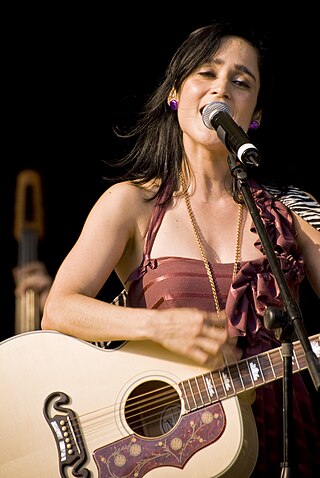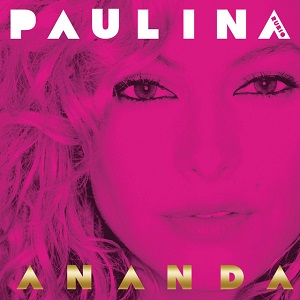
Carlos Alberto Vives Restrepo is a Colombian singer, songwriter and actor. He is known for his interpretation of traditional music styles of Colombia such as vallenato, cumbia, champeta, bambuco and porro as well as genres such as Latin pop, reggaeton, dance pop and tropical music.

Edgar Ricardo Arjona Morales, known as Ricardo Arjona, is a Guatemalan-Mexican singer and songwriter. He is one of the most successful and best-selling Latin American artists of all time, with more than 20 million records sold. His music ranges from ballads to Latin pop, rock, pop rock, Cuban music, and more recently a cappella performances and a mixture of Tejano music and Norteño music, and Latin sounds. Arjona is noted for his lyrical style, and often addresses topics such as love, sexuality, violence, racism and immigration.

Héctor Eduardo Reglero Montaner, better known as Ricardo Montaner, is an Argentine-born Venezuelan singer. Since starting his career in the late 1970s, he has released more than 24 albums, and many successful singles. He has sold an estimated 10 million records worldwide, making him one of the best-selling Latin music artists.

Franco Atilio De Vita De Vito is a Venezuelan Latin Grammy award-winning singer-songwriter. His first album as a solo artist garnered three Spanish-language hits in Venezuela. He signed with the CBS Records label in 1989, and in 1990, his album Extranjero had a song that reached No. 1 on the United States Latin charts and won an MTV Video Music Award. His 2004 album Stop reached the Top 10 throughout Latin America and on the United States Latin charts. In the United States alone, he has scored more than two dozen hits on the Billboard charts.

Julieta Venegas Percevault (Spanish pronunciation:[xuˈljetaβeˈneɣas]; born on November 24, 1970, Julieta Venegas is an American-born Mexican singer, songwriter, instrumentalist, and producer who specializes in pop-rock-indie music in Spanish. She embarked on her musical journey by joining several bands, including the Mexican ska band Tijuana No!. Venegas is proficient in playing 17 instruments, including the acoustic guitar, accordion, and keyboard.

Miranda! is an Argentine electropop band formed in Buenos Aires in 2001. Original band members include Alejandro Sergi, Juliana Gattas, Lolo Fuentes (guitar), Bruno de Vincenti (programming), and Nicolás Grimaldi (bass). It is currently a duo between Sergi and Gattas.

Diego Antonio Caccia, known as Diego Torres, is an Argentine pop singer, songwriter, musician, and actor. His music is generally categorized as Latin pop, tropical, and rock & roll. He is a member of the Latin Songwriters Hall of Fame, and the son of the Argentine icon Lolita Torres.

Miguel Angel Peralta, known by his artistic name Miguel Abuelo, was an Argentine rock musician and singer.

Ananda is the eighth studio album by Mexican singer-songwriter Paulina Rubio, released on September 18, 2006, through Universal Latino. Its pop rock music incorporates latin, dance, folk, electropop, alternative and flamenco styles with instrumentation from synthpop beats, guitars, drums, synthesizers, strings and Spanish musical instruments. Its themes range from love, empowerment, and dancing. Contributions to the album's production came from a wide range of producers, including Cachorro López, Rick Wake, Tricky Stewart, Áureo Baqueiro, TOY Hernández and Gustavo Santaolalla. Among the songwriters and artist collaborators appear on the album are Xabi San Martín from La Oreja de Van Gogh, Slash from Guns N' Roses, Juanes, Julieta Venegas and Coti.

Sí ("Yes") is the third album by the Mexican singer-songwriter Julieta Venegas. She co-produced the album with Cachorro López and Coti Sorokin. After the success of this album, it was re-released in 2005 including 9 new tracks and a DVD. The album won the Latin Grammy Award for Best Rock Solo Vocal Album and received a nomination for Grammy Award for Best Latin Rock/Alternative Album. Worldwide, the album has sold 3.5 million copies.
The 8th Annual Latin Grammy Awards took place on Thursday, November 8, 2007, at the Mandalay Bay Events Center in Las Vegas, Nevada. The show aired on Univision. Juan Luis Guerra was the night's big winner, winning 5 awards including Album of the Year. Juan Luis Guerra was honored as the Latin Recording Academy Person of the Year one night prior to the telecast.

The 9th Annual Latin Grammy Awards took place on Thursday, November 13, 2008, at the Toyota Center in Houston, Texas and were aired on Univision. The Brazilian Field awards were presented on the same day at the Ibirapuera Auditorium in São Paulo. The Latin Recording Academy Person of the Year was Gloria Estefan. Juanes was the night's big winner, winning 5 awards including Album of the Year. He now has 17 Latin Grammy awards which is more than any other recording artist. The show was watched by an average of 5.8 millions.
The discography of Diego Torres, an Argentine pop singer, consists of seven studio albums, one live album, one compilation album, thirty-three singles, twenty-nine music videos and two DVDs, certifications and sales are also included.

"Color Esperanza" is the lead single from Diego Torres's fifth studio album Un Mundo Diferente.

Luna Nueva is the third studio album by Argentine singer-songwriter Diego Torres, it was released on December 17, 1996 through RCA Records. The music video for the single "Sé Que Ya No Volverás" was nominated for a Lo Nuestro Award.
Gerardo Horacio López von Linden, known professionally as Cachorro López, is an Argentine record producer, musician and songwriter. Born in Buenos Aires, Argentina, he enrolled in various musical ensembles, including Zas and Los Abuelos de la Nada. López has worked with several artists producing their albums, including Caifanes, Stephanie Salas, Andrés Calamaro, Paulina Rubio, Diego Torres and Miranda!. López also was the executive producer of the tribute album for the English band Queen in 1997. His work has been recognized with two Latin Grammy Awards for Producer of the Year in 2006 and 2009, out of four consecutive nominations, and a Grammy Award for producing Limón y Sal by Julieta Venegas.

Vicentico 5 (2012) is the fifth album by Argentine rock and pop singer-songwriter Vicentico.

Argentine singer Lali has released five studio albums, two extended plays, two live albums, one soundtrack album, fifty-one singles and twelve promotional singles. She first appeared on the track "No Digas Nada" for the Rincón de Luz soundtrack in 2003. From 2007 to 2012, Lali was part of the pop group Teen Angels, derived from the television series Casi Ángeles. The group recorded five studio albums, two compilation albums, three live albums, and sixteen singles, with their albums receiving gold and platinum certifications in Argentina and Spain. In 2013, one year after the group's disbandment, Lali announced her solo career.

Ángela Azul Concepción Caccia, better known as Ángela Torres, is an Argentine actress and singer. She is the daughter of actress Gloria Carrá and musician Marcelo Torres, niece of popular singer Diego Torres, and granddaughter of Lolita Torres. She has also taken part in several musical comedies such as "The Sound of Music" and "Peter Pan".

El Último Tour Del Mundo is the third solo studio album by Puerto Rican rapper and singer Bad Bunny. It was released on November 27, 2020, by Rimas Entertainment, only nine months after the release of his previous record YHLQMDLG, which achieved both commercial success and critical acclaim. Comprising sixteen tracks, it is primarily a Latin trap and reggaeton album infused with a variety of rock music styles, and features guest appearances from Jhay Cortez, Rosalía, Abra, and Trío Vegabajeño. The album's title refers to how Bad Bunny imagined what his last concert tour would look like, as he imagined his final tour in the year 2032. The album was written and recorded during the COVID-19 quarantine and is a departure from Bad Bunny's aggressive reggaetón sound.

















